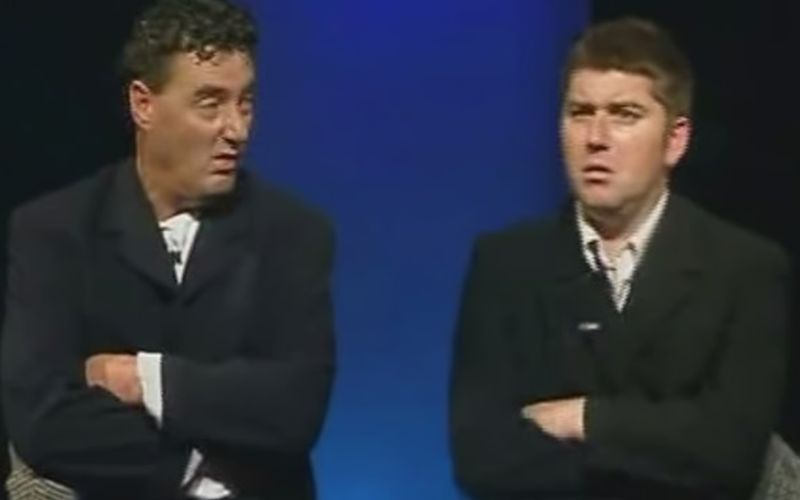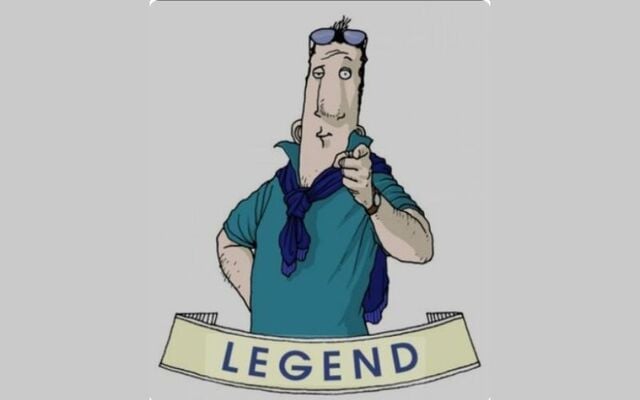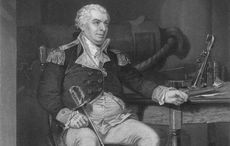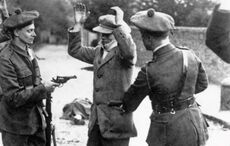One-time Son of the Hub Steve Coronella credits Paul Howard’s Ross O’Carroll Kelly, plus Jon Kenny and Pat Shortt’s "D’Unbelievables", with making him feel right at home
When I first visited Ireland in the summer of 1980 with my mother and Cork-born grandmother – followed by three much lengthier solo stays in 1982, ‘84 and ‘86 and eventual residence in 1992 – certain things caught my eye.
First, there were the ever-present posters for concerts and plays plastered around Cork City, where I was based. I would have gladly attended many of these fine productions and thus bolstered the local arts scene – with my magisterial American Express traveler’s checks miraculously reborn as cartoonish punt notes – but the persuasive posters were invariably weeks if not months out of date. Before long, I came to view any event notification – regardless of its appeal – not as a current announcement but more like an open-air museum piece.
I also remember browsing through a few issues of The Phoenix magazine, a sort of Irish current affairs version of Mad Magazine as I saw it then. My assessment was based on the publication’s trademark front covers, which featured a photo of a prominent politician or public personality who had recently become embroiled in some controversy now long forgotten.
Since there was no advanced AI technology then, these images were unquestionably genuine and undoctored – except for the speech bubbles containing some humorous or satirical comment linked to these topical bigwigs.
Of course, in those days I was a mere interloper in Ireland, oblivious to the contentious events swirling around me, so the Phoenix’s irreverent cover photos and interior stories were a mystery to me. And that’s perfectly understandable. Even today, with the fingertip accessibility of the Internet to enlighten us on matters outside our ken, no casual American visitor would consider picking up an issue of the Phoenix to while away an hour or two on their tour bus.
Likewise, my later encounters with Jon Kenny and Pat Shortt’s "D’Unbelievables" comedy duo puzzled me at first. I hadn’t a clue what they were at, with their heavy rural accents and over-the-top outfits. (I had the same initial reaction to the Eurovision Song Contest, and that was when the songs took center stage. I’m even more perplexed today.)
Of course, the "D’Unbelievables’" brand of comedy isn’t for everyone, but only someone with a handle on GAA culture and country life is likely to find their sketches and send-ups amusing. (Having spent many years on the sidelines of my son’s hurling matches, coupled with my familiarity of life outside the Dublin bubble, I can now see that the "D’Unbelievables’" gags and impersonations aren’t quite as exaggerated as I’d first believed.)
Jon Kenny and Pat Shortt... "D’Unbelievables",
All of which makes me wonder if perhaps the best measure of inclusion or belonging in a community isn’t the number of clubs or organizations you decide to join, but rather whether or not you get particular jokes or “characters”.
Given the deeply earnest and unfunny times in which we find ourselves, this is no trivial issue.
We can all look up the definition of satire, but how many of us are able to recognize and appreciate it when it appears, whether on screen or in print? Or, more important these days, how many of us can recognize when our own words and behavior become self-satirizing?
Slapstick comedy, done well, has universal appeal. And certain shticks involving broad archetypes – meddling mothers-in-law, bumbling bosses, dithering DIY dads, and pompous legal practitioners – can also raise a general titter on occasion.
But when it comes to laser-sharp humor and satire involving characters specific to a certain period and setting, some degree of background understanding is helpful in order to really get the joke. (I’m thinking in particular of the works of John B. Keane, which have a slow-gathering momentum of truth and accuracy behind the comic staginess. Father Ted, on the other hand, sits comfortably between Monty Python and Arrested Development in the realm of the absurd.)
Twigging the social context, in other words, often sharpens the humor and the satirical punch.
Read more
And that’s why, after 33 years living in Ireland, I can assume a well-earned place among my neighbors because I get rugby legend (in his own mind anyway) Ross O’Carroll Kelly, perhaps Ireland’s greatest literary athletic figure since Finn McCool hurled the stones that created the Giant’s Causeway.
(Having acquired a sufficient knowledge of south county Dublin society, I would argue that Paul Howard’s 24-book canon devoted to an eternal adolescent and his peers leans toward investigative journalism at times. But that’s a discussion for another day.)
Over the years there have been many recurring comic characters born on the pages of a newspaper, from Finley Peter Dunne’s Chicago-based Mr. Dooley to Frank Sullivan’s cliché expert Mr. Arbuthnot to Flann O’Brien’s sui generis sibling The Brother. But none of these estimable gents has been as fully fleshed out, so to speak, as Ross O’Carroll Kelly.
So for producing such a pitch perfect vernacular and for incorporating just the right social signifiers – certain postal and sporting codes, exclusive designer clothing brands, and pretentious southside Dublin secondary schools – into your weekly Irish Times columns and multi-volume RO’CK oeuvre with the relentlessly punning titles, well, take a bow, Mr. Howard. You’ll never win the Booker Prize, but you’ve delighted innumerable readers – a more significant honor in my book.
And though I’ll never speak more than the cúpla focal – if that – I’m now an authority on Ross-speak, a dialect of a universal tongue distinguished by soft-hearted dim-wittedness and mindless pretension.
* Boston native Steve Coronella has lived in Ireland since 1992. He is the author of “Designing Dev,” a comic novel about an Irish-American lad from Boston who's recruited to run for the Irish presidency. His latest publications are the column collections “Entering Medford – And Other Destinations” and "Looking Homeward - Essays & Humor from a Misplaced American".
This article was submitted to the IrishCentral contributors network by a member of the global Irish community. To become an IrishCentral contributor click here.




Comments